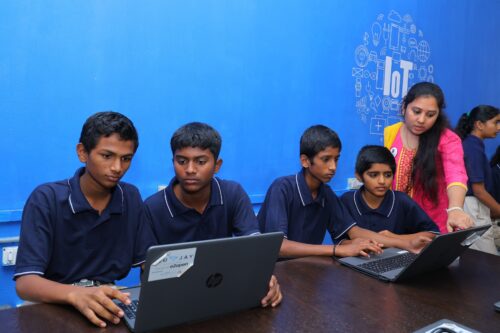Post Syndicated from James Robinson original https://www.raspberrypi.org/blog/hello-world-podcast-season-6-computing-education/
Through the Hello World podcast, we help to connect computing educators around the world and share their experiences. In each episode, we expand on a topic from a recent Hello World magazine issue. After 5 seasons, and a break last year, we are back with season 6 today.

Episode 1: Do kids still need to learn how to code?
In the recent ‘Teaching & AI’ issue of Hello World, our CEO Philip Colligan discussed what AI means for computing education, including for learning to program. And our first new podcast episode is all about this question, which every computing educator has probably thought about at least once in recent months: Do kids still need to learn how to code?
Joining my co-host Veronica and me are two computing educators: Pete Dring, Head of Computing at Fulford School in York, and Chris Coetzee, a computer science teacher for 24 years and currently a PhD student in Computer Science Education at Abertay Dundee. Given the recent developments in AI-based code generators, we talk about whether such tools will remove our learners’ need to learn to code or simply change what coding, and learning to code, looks like*.
What’s coming up in future episodes?
New episode of season 6 will come out every 2 weeks. In each episode we explore computing, coding, and digital making education by delving into an exciting topic together with our guests: experts, practitioners, and other members of the Hello World community.
Also in season 6, we’ll explore:
The role of computing communities
We discuss the value and importance of being connected to other computing educators through the many different teaching communities that exist around the world. What makes effective communities, and how do we build and sustain them?

Why is understanding cybersecurity so important?
From classroom lessons to challenges and competitions, there are lots of opportunities for learners to discover cybersecurity. There are also many pitfalls where learners’ online activities put them at risk of breaking the law. We discuss some of these pitfalls along with the many career opportunities in cybersecurity.
How to develop as a computing educator?
What is involved in becoming an effective computing educator? What knowledge, skills, and behaviours are needed, and how do we go about developing them? We sit down with teacher trainers and trainees to explore this topic.

What is the state of computing education and where is it heading?
Computing education has come a long way in the last decade in terms of practice and policy, as well as research. Together with our guests we discuss where computing education is today around the world, and we consider the lessons we can learn and the challenges ahead
What is the role of AI in your classroom?
AI continues to be a disruptive technology in many spaces, and the classroom is no exception. We hear examples of practices and approaches being explored by teachers in the classroom.
Listen and subscribe today
If you’ve not listened to the Hello World podcast yet, there are 5 whole seasons for you to discover. We talk about everything from ecology and quantum computing to philosophy, ethics, and inclusion, and our conversations always focus on the practicalities of teaching in the classroom.

Many of our podcast guests are Hello World authors, so if you’re an educator who wants to share your insights into how to teach young people about digital technology, please let us know. Your words could end up in the pages as well as on the airwaves of Hello World.
You’ll find the upcoming Hello World season and past episodes on your favourite podcast platform, including YouTube now, where you can also subscribe to never miss an episode. Alternatively, you can listen here via your browser.
* If you want to dive into the newest research on programming education with and without AI, check out our current seminar series.
The post Season 6 of the Hello World podcast is here appeared first on Raspberry Pi Foundation.





